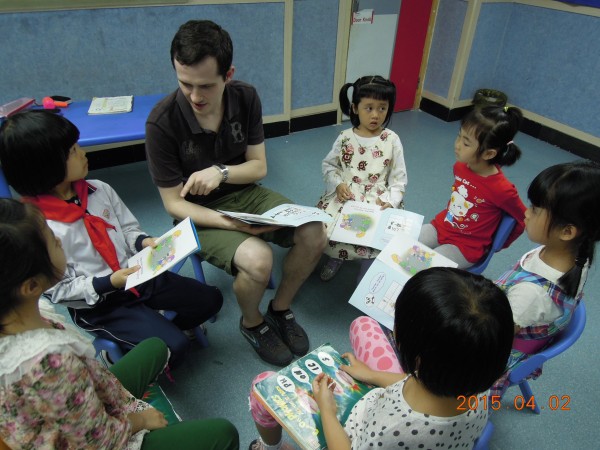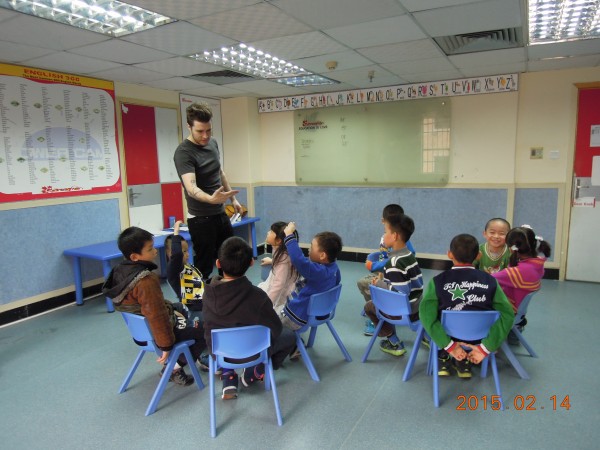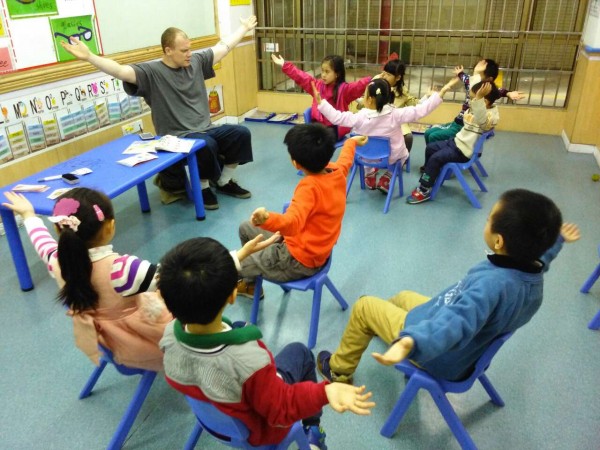| |
| Do children learn English more effectively in one-to-one situations than in classes? | | ¡¡Hits£º15701¡¡AddTime£º2015-5-15 16:36:57 |
Do children learn English more effectively in one-to-one situations than in classes?
Parents¡¯ Question£ºI think there are too many kids in a class, I would like to invite a foreign teacher to do tutoring at home. Isn¡¯t it better if there are only 1-3 kids?
Director¡¯s Answer£º It¡¯s undeniable that with a foreign teacher¡¯s help your child can learn proper English pronunciation and get some early help with oral English abilities. However, if a foreigner is not a professional English teacher, working with no English institutions and without professional teaching and training systems, the following problems may arise:

Limited Topics
There are common themes that many ¡°teachers¡± frequently use in tutoring sessions centred on daily life like fruit, foods and such. However, once children are confronted with topics not covered they are often unable to communicate. It¡¯s also important to make sure that reading, writing, listening and speaking skills are all targeted in kids¡¯ golden period of language study. Otherwise, valuable learning time is being wasted.

Not Individualized
Professional foreign teachers will choose to use textbooks. But in classroom teaching teachers can adapt to children's learning characteristics and the use of materials is different. In classes, teachers have the opportunity to teach to a wider variety of learning styles. For example, some children particularly like moving around in class, so TPR (Total Physical Response ¨C a part of EFL teaching) becomes necessary so that kids remember new words through action and activity. Some children are auditory learners and therefore are best taught through songs or group discussions. Owing to a lack of teaching experience£¬it can be difficult for tutors to teach according to children's individual characteristics and feedback. In such cases children will lose interest quickly.

Lack of Interaction with Peers
Why is peer interaction necessary? Two primary reasons come to mind:
1) Kids grasp tend to grasp and remember information they have used with peers more firmly. For example, students who make persistent errors are generally less likely to be embarrassed by being corrected by peers than by the teacher. Peers are also able to mimic stronger peers as well as the teacher.
2) Building teamwork abilities and social skills are important parts of the learning process. In CIEO classes teams will work on projects as a group such as team-based games, pairs work or correcting each other¡¯s quizzes. All of these are opportunities for expanded English learning and developing the language to reflect higher skills.

Most people refer to what they have done in classes themselves as students, or settle on what seems the easiest method. In language learning a common mistake is try to teach students as though they are already somewhat familiar with English, like one might with teaching Chinese reading lessons, ignoring that English is being taught as a second language. It¡¯s extremely common for parents and non-professional teachers to just provide a reading book and begin reading the text straight away, or to have students listen to a tape which goes with the book.
In actuality this is a backwards approach. There is a process to teaching that begins with having a discussion about the general theme of a material to be presented to gather a sense of how much students understand about the ideas about to be discussed. There is a phase where language is taught before reading and/or listening so that misunderstandings do not hinder the flow of the material being read or listened to. Only then will kids fully grasp what is being presented to them.

Good teachers pool student knowledge and then merely fill in the gaps in understanding, allowing kids the chance to share what they know with one another and strengthen the understanding of the group. This is impossible in a tutoring session and this is the primary reason that tutoring in school is normally reserved for review, because it¡¯s not particularly useful for the teaching phase of knowledge gaining.
English speaking tutors may not be advisable for parents. While there may be improvements in some areas, a professionally designed course targeting a wide range of skills and areas is more likely to produce results that parents may not have considered before. The classroom dynamic is not just economical, it¡¯s based on how people have historically always worked best.
| | ¡¾Refresh¡¿¡¾Favorites¡¿¡¾Print¡¿ ¡¾Close¡¿ | | Previous:Exploring the Supermarket¡¡Next:Is Your Child Prepared to Enter Primary School |
|
|
|


